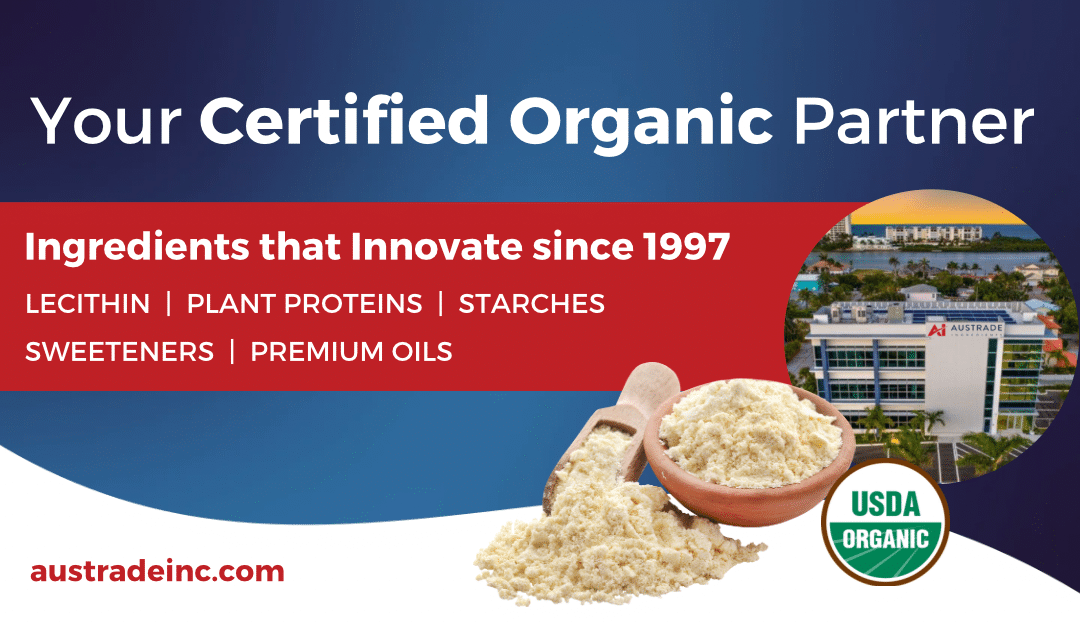Austrade Ingredients: Your Certified Organic Partner
The Organic industry has experienced a major shift since 2000 when USDA Organic Regulations were fully implemented with the establishment of The National Organic Program (NOP). Both demand for and sales of organic products have risen steadily where total U.S. sales of organic products reached more than $63 billion in 2021 (Organic Trade Association, Organic Industry Survey, 2022).
In March 2023, The NOP issued its Strengthening Organic Enforcement (SOE) rule to enhance integrity in the organic supply chain. New regulations aim to strengthen oversight and enforcement of the production, handling and sale of organic agricultural products in the United States.
The rule was officially implemented on March 19, 2024 for all Operations and Certifiers and amends several sections of the USDA Organic regulations, as established by the Organic Foods Production Act of 1990. The need for this new rule-making was prompted by organic market growth and increasingly intricate organic supply chains. Today’s organic market is characterized by long, global supply chains where organic products are handled by many businesses before inevitably reaching the consumer.
Previously, the only operations that required certification were those involved in producing, processing, packaging and labeling organic products. Amendments seek to bolster consumer confidence in the USDA Organic label by strengthening organic control systems, improving source to market traceability, and by implementing more robust enforcement of USDA Organic regulations by requiring buyers, sellers, brokers and traders to now be certified as well.
One of the most common risks to the integrity of an organic product is mishandling which can occur at any point in a supply chain including production, handling, transport, storage, sale and processing. Examples of mishandling include exposure to fertilizers, pesticides or cleaning agents that are not permitted in organic production, as well as commingling organic and nonorganic items.
Another growing risk to organic supply chain integrity is deceptive representation, sale or labeling of nonorganic items as organic, also known as fraud. Because supply chains have become much more complex and involve various changes in ownership of certain products, the incentive for fraud is high. Federal investigations show that organic grain and oilseed fraud can lead to tens of millions of dollars in fraudulent sales within just a few months (NOP Final Rule, federalregister.gov).
The USDA’s Agriculture Marketing Service (AMS) expects the amendments will bring more impactful oversight to high-risk portions of organic supply chains while preserving organic integrity and product transparency, ensuring fair competition, reducing organic fraud, and supporting continued industry growth by preserving consumer confidence globally.
Why does this matter?
For more than 27 years, Austrade has remained at the forefront of innovation in the North American ingredient space—delivering on Organic & Non GMO declarations with a proven track record, reliable supply and full traceability. We are proud to serve as your official Certified Organic partner for Lecithin, Plant Proteins, Starches, Sweeteners and Premium Oils in 2024 & beyond! Our premium portfolio adheres to the most stringent standards—providing the Clean Label requirements your global customer wants with the performance qualities your formulation needs.
Explore Austrade’s Organic & Non-GMO ingredients
Contact our sales team for more information.
